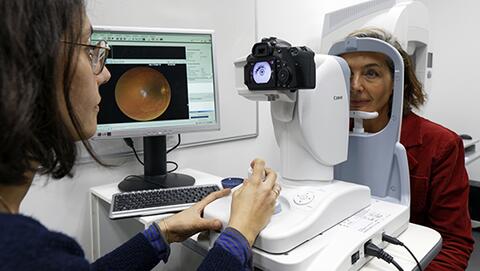
The ethics and whistle-blowing officer
Deontology covers all the principles and values of good professional conduct, and is a kind of code of practice for professional activities.
In the public sector, ethics concern the conduct of public service employees, whether civil servants or contract staff, whatever their function.
Ethics
The obligations of civil servants are based on the values of public service as set out in the law of July 13, 1983: dignity, impartiality, integrity, probity, neutrality and secularity.
They also include the obligation not to place oneself in a situation of conflict of interest, and to devote oneself entirely to one's duties. Failure to comply with these obligations may result in disciplinary action.
The ethics and whistle-blowing officer
Sorbonne University's ethics and whistleblowing referent position was created by order of the President on October 2, 2019, and enshrined in Sorbonne University's revised bylaws. It has been entrusted to Pierre Valleix, Honorary General Counsel at the Cour de cassation.
The ethics officer
The law of April 11, 2016 art 28 bis provided that "any public employee has the right to consult a deontologist referent, responsible for providing any useful advice on compliance with ethical obligations and principles".
The university's ethics officer advises all staff on the application of ethical principles. Any member of staff may refer to him or her any ethical issue that concerns him or her. Referrals are strictly confidential.
It is important to remember that:
- civil servants have the right to seek advice from the ethics officer;
- the ethics officer's main role is to prevent conflicts of interest;
- his or her intervention is exclusively in the field of prevention, and in no way disciplinary.
Guarantees
Referral to the ethics officer is subject to fundamental guarantees for the employee:
- the ethics officer is completely independent of Sorbonne Université's administration, and is not accountable for any referrals or advice he or she may have given;
- the relationship with the ethics officer is governed by professional secrecy, and no information may be passed on to any third party concerning exchanges with the ethics officer.
Referral procedures
The Ethics Officer can be contacted directly by staff members using the contact form provided, or by filling in the following form by email or by post, marked "confidential", to: Référent Déontologue de Sorbonne Université - Pierre Valleix - 15 rue de l’Ecole de Médecine F-75006 Paris.
The deontologist can also meet directly with the employee, either by telephone or by appointment in his or her office at Les Cordeliers.
Note: the e-mail address of the person making the complaint must clearly identify him or her as a Sorbonne University employee. The referent will only be able to deal with referrals from an official e-mail address (domain: @sorbonne-universite.fr).
The alert officer
The law of December 9, 2016 on transparency, the fight against corruption and the modernization of economic life created the function of whistleblower referent. This law was amended by the law of March 21, 2022, which on the one hand completed the definition of whistleblower, and on the other modified the procedure (decree of October 3, 2022).
The law gives a precise definition of a whistle-blower. A whistleblower is a natural person who reports or discloses, in good faith and without direct financial consideration, facts constituting an offence.
The report may concern:
- facts constituting a misdemeanor or felony, or facts that may be qualified as a conflict of interest,
- facts constituting a threat or prejudice to the general interest,
- a violation or an attempt to conceal a violation of European law, the law or regulations,
- a violation or attempted concealment of a violation of an international commitment ratified or approved by France, or of an act of an international organization taken on the basis of such a commitment.
The whistleblower must have become aware of the facts in the course of his or her duties, or if the information was not obtained in the course of professional activities, the whistleblower must have had personal knowledge of the facts.
Whistle-blowing procedure
Whistle-blowers must report incidents in accordance with the internal reporting procedure set up by the administration.
The whistleblower can report the matter to the whistleblower referral officer using the whistleblower referral form, or to one of the following authorities:
- the competent administrative authority,
- the rights defender,
- the public prosecutor.
Guarantees
Whistleblowers may not be subjected to any discriminatory or disciplinary measure as a result of their reporting, nor to any threat or attempt to take such a measure.
